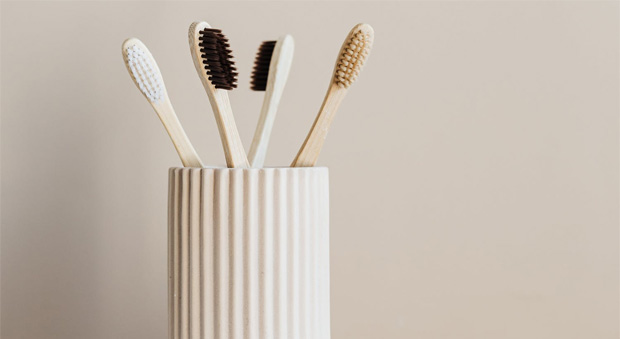10 Common Dental Problems and How to Prevent Them

10 Common Dental Problems and How to Prevent Them
Dental problems are no joke. They can cause a lot of pain and discomfort and can even be life-threatening in some cases. That’s why it’s essential to know how to prevent them from happening in the first place. This blog post will discuss ten common dental problems and how you can prevent them from occurring. We’ll also be talking to an expert dentist in a dental clinic in London about the best ways to keep your teeth healthy and sparkling.
1) Bad breath:
This is one of the most common dental problems, which several things can cause. First off, if you don’t brush your teeth regularly enough, then food particles will get stuck between them, which gives bacteria a place to grow. Second, certain foods like onions or garlic can also make your mouth smell bad because they release a gas called sulfides. And finally, gum disease can also cause bad breath.
The best way to prevent bad breath is to brush your teeth at least twice a day, floss regularly, and avoid foods that are known to cause bad breath. You may also want to try using a mouthwash or chewing sugar-free gum after meals.
2) Tooth decay:
Tooth decay is another common dental problem. It happens when bacteria in the mouth break down food particles into acid, which eats away at your teeth’ protective enamel layer. Without this protection, holes called cavities will form where bacteria can live and grow leading to an infection that could cause pain or even tooth loss.
The best way to prevent tooth decay is to brush your teeth at least twice a day with a preventative formulated toothpaste like the duraphat toothpaste 5000, floss regularly and avoid foods that are high in sugar. You may also want to consider getting a dental sealant or fluoride treatment from your dentist City of London.

3) Gum disease:
Gum disease is a common dental problem that can lead to tooth loss if left untreated. It starts with gingivitis, an inflammation of the gums caused by plaque buildup around them (gingiva means “gums” in Latin). If this condition progresses into periodontitis, your teeth will start falling out due to bone loss in the jaw.
The best way to prevent gum disease is by brushing at least twice a day and flossing regularly, as well as seeing your dentist for regular checkups/cleanings every six months or so in a diagnostic center in London.
4) Tooth pain:
Tooth pain is another common dental problem. It’s usually caused by gum disease, but things like cavities or tooth decay can also cause it. If left untreated for too long, then there may even come the point where the only option left to relieve your suffering would be extraction.

5) TMJ disorder:
TMJ disorder is a condition that affects the temporomandibular joint, which is the hinge that connects your jaw to your skull. It can cause pain in the jaw, neck, and head, as well as difficulty opening and closing your mouth.
There is no definitive cure for TMJ disorder, but there are a few things that you can do to help relieve the symptoms:
- You can try using a mouth guard or splint at night to keep your jaw in a more comfortable position. for tmj headache relief.
- You can try doing some relaxation exercises or yoga to help reduce stress levels.
- You may want to see the best chiropractor or physical therapist in NYC to help with the muscle tension in your neck and jaw.
6) Tooth sensitivity:
Tooth sensitivity is another common dental problem that can cause pain when eating or drinking hot/cold foods. The best way to prevent tooth sensitivity is by brushing at least twice a day with a soft-bristled brush and fluoride toothpaste, flossing regularly between teeth (but not too hard), and avoiding acidic drinks like soda seeing your dentist for regular checkups/cleanings every six months or so in a diagnostic center in London.

7) Cavities:
Cavities are another common dental problem that can lead to tooth pain and even tooth loss if left untreated. They are caused by bacteria in the mouth breaking down food particles into acid, which eats away at your teeth’s protective enamel layer. Without this protection, holes called cavities will form where bacteria can live and grow.
The best way to prevent cavities is by brushing your teeth at least twice a day, flossing regularly, and avoiding high sugar foods. You may also want to consider getting a dental sealant or fluoride treatment from your dentist.
8) Tooth wear:
Tooth wear is another common dental problem. It can be caused by things such as grinding your teeth at night, chewing on ice cubes or hard candies, wearing dentures for too long without taking them out to eat or sleep (this will cause the gums underneath them to recede), and brushing too hard with a toothbrush.
The best way to prevent tooth wear is by not grinding your teeth at night (try using a mouth guard), not chewing on ice cubes or hard candies, wearing dentures for only short periods, and brushing with a soft-bristled brush and fluoride toothpaste.

9) Dental erosion:
Dental erosion is a condition that is caused by acids in foods and drinks eroding at the teeth’s protective enamel layer. The most common sources of these acids are citrus fruits, sports drinks, and soda.
The best way to prevent dental erosion is by eating a healthy diet that includes plenty of fresh fruits and vegetables, drinking plenty of water (especially after eating citrus fruits), and avoiding sugary drinks like soda. You may also want to consider using a straw when drinking anything acidic or sugary so that less of the liquid touches your teeth directly.
10) Cracked tooth syndrome:
Cracked tooth syndrome is another common dental problem. It occurs when the enamel layer of your teeth becomes weakened and cracks, usually from chewing on hard foods like nuts or ice cubes. The best way to prevent cracked tooth syndrome is by avoiding these types of foods entirely (try eating softer ones instead), brushing with a soft-bristled brush and fluoride toothpaste, flossing regularly between teeth (but not too hard), and seeing your dentist for regular checkups/cleanings every six months or so.
Now that you know the most common dental problems and how to prevent them, try implementing these tips into your daily routine. Your teeth will thank you for it. For more information, you can visit nicelocal.co.uk.
Guest Article. Contains sponsored links.




